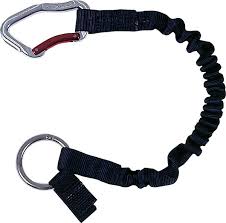记忆方法
1. 谐音“特韧儿、太韧儿”----系绳、系链特别有韧性。
2. tight => tet- + her => tether.
3. gather => gether => to + gether => together => tether.
4. to + gether => tether.
5. tie + gather / gether => tether.
6. tie => tether.
2. tight => tet- + her => tether.
3. gather => gether => to + gether => together => tether.
4. to + gether => tether.
5. tie + gather / gether => tether.
6. tie => tether.
中文词源
tether 拴绳
可能来自古诺斯语 tjothr,拴绳,来自 Proto-Germanic*teudran,绳子,来自 PIE*deu,绑紧,系牢, *tro,工具格后缀,词源同 rudder.
英语词源
- tether (n.)
- late 14c., "rope for fastening an animal," not found in Old English, probably from a Scandinavian source akin to Old Norse tjoðr "tether," from Proto-Germanic *teudran (cognates: Danish tøir, Old Swedish tiuther, Swedish tjuder, Old Frisian tiader, Middle Dutch tuder, Dutch tuier "line, rope," Old High German zeotar "pole of a cart"), from PIE root *deu- "to fasten" + instrumentive suffix *-tro-. Figurative sense of "measure of one's limitations" is attested from 1570s.
- tether (v.)
- late 14c. (implied in tethering), "confine by a tether," originally of grazing animals, from tether (n.). Figurative use also from late 14c. Related: Tethered.
权威例句
- 1. She was jealous, humiliated, and emotionally at the end of her tether.
- 她既忌妒又感到屈辱,感情上已经到了崩溃的边缘。
- 2. I've reached the end of my tether.
- 我已经无计可施了。
- 3. The cow had broken its tether and was in the cornfield.
- 那头牛弄断系绳,跑到玉米田里去了.
- 4. This is beyond my tether.
- 这是我力所不能及的.
- 5. He's at the end of his tether.
- 他没着儿了.

